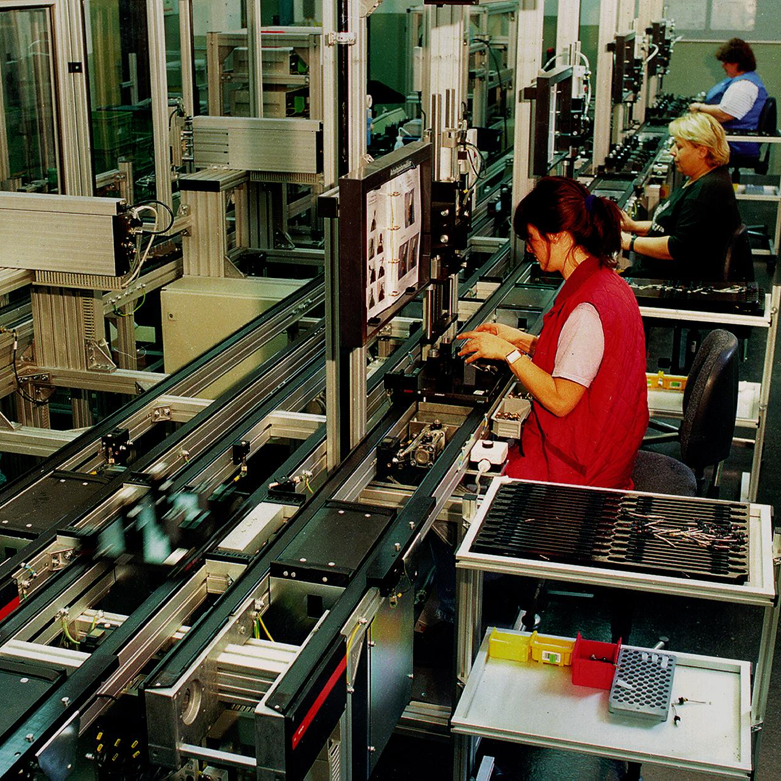In today's era of rapid technological development, the rise of Artificial Intelligence (AI) is undoubtedly one of the most compelling trends. In industries such as machinery manufacturing, automotive manufacturing, and aerospace, AI technology has shown great potential, which can assist us in complex calculations, analyses, and simulations, and improve work efficiency and quality. However, with the wide application and deep penetration of AI technology in various fields, a question of great concern is gradually surfacing: in the future, will AI replace mechanical engineers?
As of now, the application of artificial intelligence in the mechanical field has made significant progress. For example, through machine learning algorithms, a large amount of mechanical design data can be analysed and optimised to quickly generate more efficient and reliable design solutions. In the production process, AI can achieve real-time monitoring and fault prediction of equipment, improving production efficiency and quality control. In addition, the application of intelligent robots in machining and assembly is also becoming more and more widespread, and they are able to complete some high-precision and highly repetitive work.
However, from the relevant data, although the application of artificial intelligence in the mechanical field is increasing, the demand for mechanical engineers has not decreased. On the contrary, with the continuous progress of technology and the development of the industry, the demand for mechanical engineers with innovative ability, comprehensive literacy and teamwork spirit continues to grow.
Reasons why AI cannot completely replace mechanical engineers
Creative thinking: although AI has shown great ability in the field of mechanical engineering, it does not mean that it can completely replace mechanical engineers. The work of mechanical engineers is not just about the technical aspects of operations, but also includes a wealth of creativity and innovative thinking. They are able to come up with unique and novel design concepts according to different needs and constraints. This innovative ability is difficult for AI to match. Although AI can optimise and improve based on existing data, it is difficult to break out of the inherent patterns and develop new design ideas like engineers do.

Practical experience: mechanical engineers have the ability to make comprehensive judgements and adapt flexibly when solving problems, which cannot be replaced by AI technology. In the actual engineering, often encounter a variety of unexpected situations and complex problems. Mechanical engineers are able to make accurate judgements quickly and take effective solutions with their rich experience, sharp intuition and in-depth professional knowledge. AI, on the other hand, may be limited by data and algorithms in the face of complex and changing situations, making it difficult to make flexible and appropriate decisions.
Interdisciplinary knowledge: Mechanical design involves the knowledge of multiple disciplines, such as mechanics, materials science, manufacturing process, etc.. Mechanical engineers need to have interdisciplinary knowledge reserves and comprehensive ability to deal with complex design problems. And AI technology is currently unable to fully cover these subject areas.
Communication and collaboration: mechanical engineers also play an irreplaceable role in teamwork and communication. In an engineering project, mechanical engineers need to work closely with other professionals, such as electrical engineers, product managers, marketing personnel and so on. And engineers are able to clearly express their design concepts, understand the needs and opinions of others, and coordinate the resources of all parties to jointly promote the progress of the project. This interdisciplinary communication and collaboration ability cannot be replaced by artificial intelligence.

Therefore, there is no need to be overly concerned about being replaced by AI for those engaged in mechanical engineering. Although the vigorous development of artificial intelligence has brought profound changes to the mechanical field, it will not replace mechanical engineers in the future. On the contrary, artificial intelligence will become a powerful tool for mechanical engineers, and together they will promote the continuous development and progress of the mechanical engineering industry. As long as mechanical engineers continue to improve their professional skills, innovation and comprehensive quality, they will be able to play an irreplaceable value in this era full of opportunities and challenges, and contribute to the future progress and development of science and technology.




